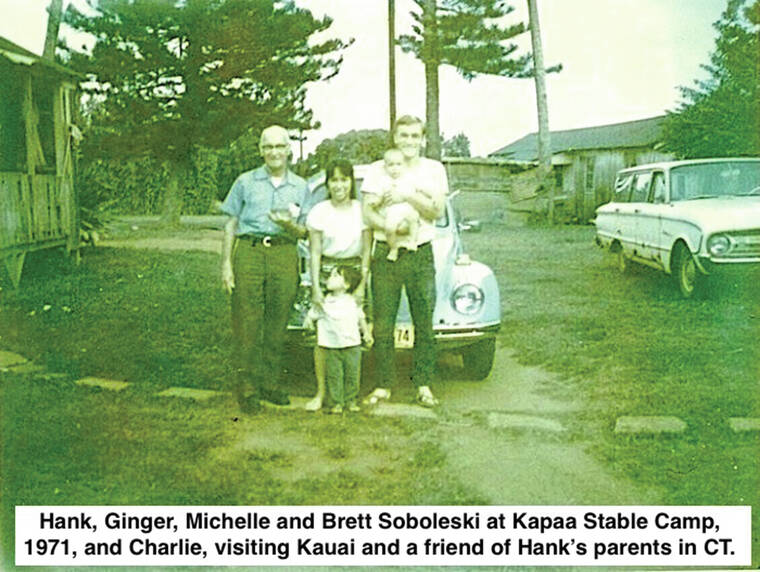During 1971, my wife, Ginger, and our two children lived at Kapa‘a Stable Camp, Makee Sugar Co., and later, a Lihu‘e Plantation employee housing camp that no longer exists, but was once a lively place situated on Ka‘apuni Road just mauka of the intersection of Ka‘apuni and Olohena roads.
My family and I were the guests of my wife’s grandma, Rita Composo Esquirra Sadang, and her second husband, Agapito Sadang, a push rake operator for Lihu‘e Plantation.
The camp was built, circa late 1800s, by Makee Sugar Co., and Grandma Rita had resided there in a plantation house since the early 1920s, when she emigrated from Cebu, Philippines, with her first husband, Bernadino Esquirra, a sugar plantation employee.
All of their children, among them my wife’s mother, Julie Beralas, were born and raised at Stable Camp.
Ginger recalled that when she was a kid growing up in the 1950s, only a few families, besides her grandma’s, lived at Stable Camp.
Among them were the Agenas and the Azevedos.
But, during my stay, only the Azevedos remained.
Grandma’s house had a large parlor, a roomy kitchen, and
four bedrooms.
There was a spacious lanai, or “balcon,” with wooden benches facing the backyard.
The wash house, or “banio,” was outside, across from the house, while the outhouse was farther away.
Still further away were pigpens.
Always busy, Grandma Rita cultivated about an acre of Stable Camp land as her farm.
On Saturdays, Grandpa Sadang, and Ginger’s uncles, her father, and Grandpa’s Filipino friends gathered at Stable Camp to slaughter, dress, and prepare a pig to eat and distribute to family and friends.
Afterward, they would enjoy pupus, drink whiskey, and talk story.
Chicken fights, or “biyagan,” were held on Sundays at Grandma’s house.
Men bet on the outcome of the fights, while one man was posted as a lookout for police cars, since cock fighting was and still is illegal in Hawai‘i.
Filipino women were there, too, to sell Filipino cakes
called “bibinka.”
Grandma died in 1976 and Grandpa returned to the Philippines in 1979.
Kapa‘a Stable Camp was demolished during the 1980s.


